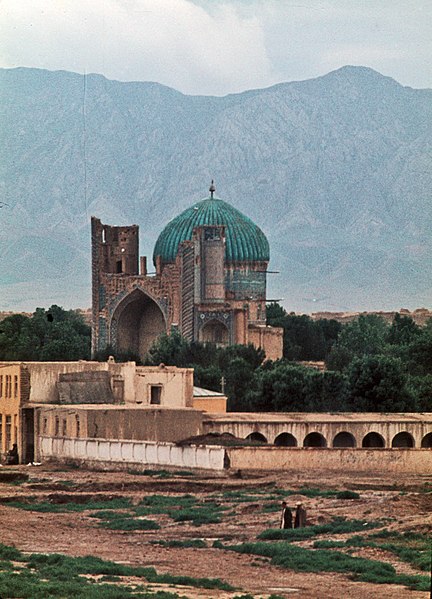Trapusa and Bahalika are traditionally regarded as the first disciples of the Buddha. The first account of Trapusa and Bahalika appears in the Vinaya section of the Tripiṭaka where they offer the Buddha his first meal after enlightenment, take refuge in the Dharma, and become the Buddha's first disciples. According to the Pali canon, they were caravan drivers from Puṣkalāvatī, in ukkalapada on way to Uttarapatha. However, most ancient Buddhist texts state that they came from Orissa or Burma i.e. modern Myanmar. Xuanzang (玄奘) says that Buddhism was brought to Central Asia by Trapusa and Bahalika, two Burmese merchants who offered food to the Buddha after his enlightenment.
Central Asian devotees Trapusa and Bahalika, making an offering to the Buddha. Cave 110, Kizil Caves, 5th-6th century CE, Xinjiang, China.
Image: Excavations at Takht i Bahi Plate XLIII Fasting Buddha, Peshawar Museum
Image: Excavations at Takht i Bahi Plate XLV Fasting Buddha with Tripusha and Bhallika, Peshawar Museum
Balkh is a town in the Balkh Province of Afghanistan, about 20 km (12 mi) northwest of the provincial capital, Mazar-e Sharif, and some 74 km (46 mi) south of the Amu Darya river and the Uzbekistan border. Its population was estimated to be 138,594 in 2021-22 by the Afghan National Statistic and Information Authority. Listed as the current 8th most populous city in the country, 2024 estimates set the population of Balkh at 114,883.
Ruins of the Green Mosque (Dari: مَسجدِ سَبز, romanized: Masjid-i Sabz) Pashto شین جومات romanized: |sheen Jumat}} [citation needed] named for its green-tiled Gonbad (Dari: گُنبَد, dome), in July 2001
Ambassador from Balkh (白題國 Baitiguo) to the Tang dynasty, Wanghuitu (王會圖), circa 650 CE.
A dirham of the Abbasid Caliphate minted in Balkh
The Green Mosque of Balkh




![Ruins of the Green Mosque (Dari: مَسجدِ سَبز, romanized: Masjid-i Sabz) Pashto شین جومات romanized: |sheen Jumat}} [citation needed] named for its gre](https://upload.wikimedia.org/wikipedia/commons/thumb/c/c0/15c_green_mosque.jpg/401px-15c_green_mosque.jpg)


